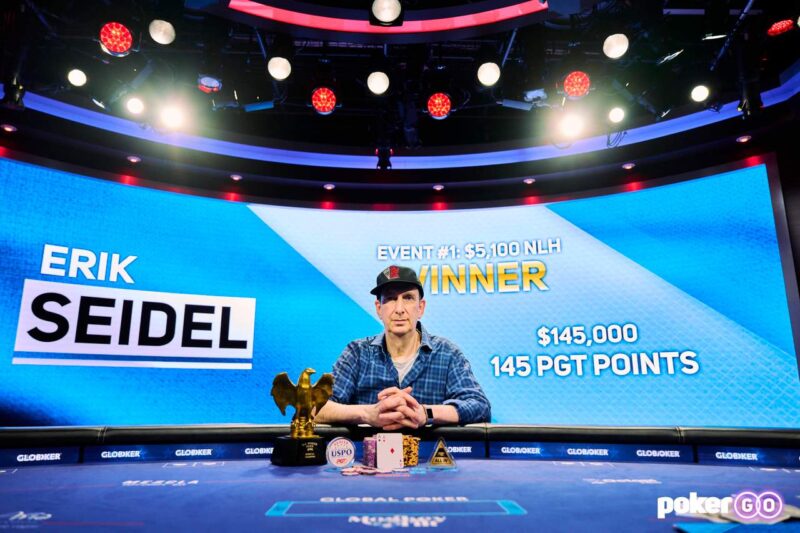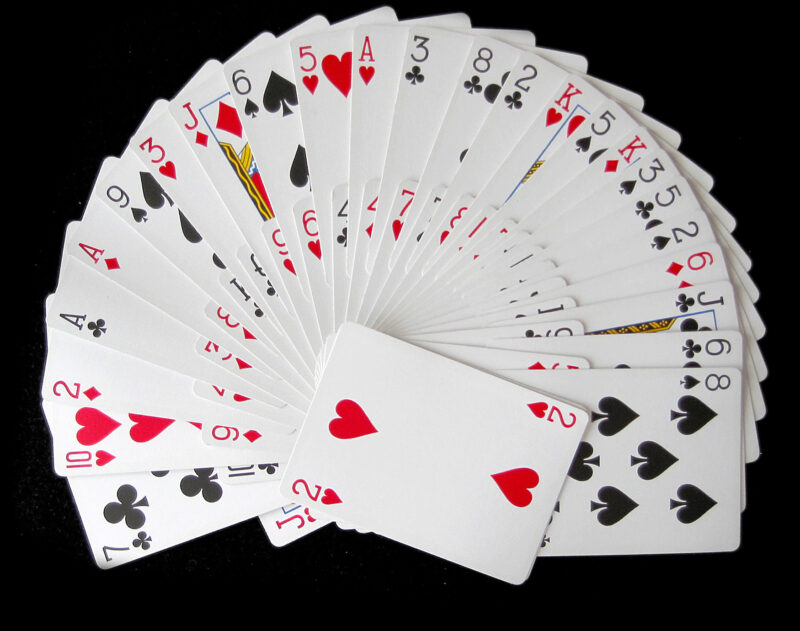Like many medical and scientific professionals, UNLV epidemiologist Brian Labus is hesitant to speak in absolutes. But he is certain that Las Vegas poker rooms will have a difficult time preventing the spread of the coronavirus, regardless of limits to the number of people allowed at a table or any plexiglass barriers.

The Nevada Gaming Control Board recently approved reopening guidelines for 31 Las Vegas cardrooms, which include, most notably, limiting poker tables to a maximum of four players.
CardsChat News spoke with Labus by phone and the assistant professor of epidemiology and biostatistics at UNLV’s School of Public Health said he isn’t convinced casinos in Nevada will open soon — despite internet rumors suggesting some Las Vegas casinos could reopen as early as Memorial Day Weekend.
Labus is an expert on communicable disease surveillance, disease epidemiology, and outbreak investigation. In March, Nevada Gov. Steve Sisolak selected him to serve on a five-member task force advising on the scientific aspects of the COVID-19 pandemic.
For poker players itching to get back to the felt, Labus shared some sobering realities.
“We’re not at the point that we’re ready to open the casinos,” Labus said. “I don’t think there’s any belief on [Nevada regulators’] part that they’re going to open the casinos on those days.”
Late Thursday night, the NGCB released guidelines for casinos that wanted to reopen restaurants to build on Sisolak’s Phase One reopening plan. For the time being, eating establishments attached to casinos will be allowed to open only if they have a separate entrance and dining rooms operate at less than 50% capacity.
Spread Limit Poker
Even if some casinos do open soon, Labus says, he’s concerned that some of the recommended safety protocols won’t be particularly effective, especially for a game like poker.
While limiting cardroom capacity, adding hand sanitizer stations, and aggressive cleaning of poker chips and chairs can help reduce some risk, Labus says, the nature of coronavirus won’t allow it to be contained.
“You can’t stop the virus from spreading in a poker room,” Labus says. “Nothing is going to completely prevent the spread.”
Labus says that table restrictions sanitation procedures can help will help minimize the spread, but nothing can completely prevent it, especially considering the length of time poker players spend in a room together. However, he agrees that the gaming board’s restrictions could help minimize the potential for harm.
Worldwide, there have been nearly 4.5 million cases, and more than 300,000 deaths.
Although Nevada’s confirmed cases (approximately 6,500 as of Friday, 331 deaths) are relatively low for a population of 3 million, Labus reminds us that tourists coming from states or countries where COVID-19 isn’t under control could lead to further spread of the virus across Las Vegas.
Calculating Risk at the Table
According to Labus, passing chips and cards around isn’t a particular threat for unleashing a massive COVID-19 outbreak. Instead, he argues the virus is more likely to spread through players coughing and breathing the same shared air — and that’s why there’s little poker rooms can do to stop it.
“Poker players sit together for an extended period of time, so that’s going to increase risk,” Labus says. “At the same time, you do have some control over how many people are in there and how many people are spaced out.”
When asked about new plexiglass dividers that some poker rooms around the country are trying out, he said he didn’t think they would be effective from a public health standpoint, beyond giving players an artificial sense of security.
NEW: Casino in Hialeah, Florida tests their updated poker tables. pic.twitter.com/VEQ6XuJZAO
— Andy Slater (@AndySlater) May 14, 2020
Could ‘Herd Immunity’ Save the 2020 WSOP?
The 2020 World Series of Poker was, unsurprisingly, “postponed” due to COVID-19. Executive Director Ty Stewart, one of the last few WSOP employees not furloughed, said the annual open poker extravaganza could still happen in the fall.
That was before the NGCB instituted its 4-max requirement for reopening. It’s hard to imagine how the WSOP could operate effectively or profitably without gaming regulators lifting that restriction. At present, there’s no timeline for when more players would be allowed back at the tables.
“It’s really hard to say what’s going to happen,” Labus said . “We have no way of predicting exactly how this virus is going to behave in the fall.”
Like most public health experts, the UNLV professor won’t make definitive predictions about what’s going to happen with coronavirus.
So-called herd immunity — resistance to the spread of a contagious disease within a population that results if a sufficiently high proportion of individuals becoming immune to the disease — has been a hot topic of discussion on social media. With unemployment reaching Great Depression levels, many in the public are willing to take their chances so they can get back to work.
Plenty of non-health experts argue that if the US reaches herd immunity, the virus will no longer be harmful. That would be good news for fans of the WSOP, if true.
There’s only one problem with that theory. “We don’t know if you get immune to the virus after becoming infected,” Labus says. “We know you get a short-term immunity, but it’s unclear if you get a permanent immunity.”
Reopening the Rio
So are individual poker rooms any different than large cavernous halls like the Pavilion and Amazon rooms at the Rio Convention Center?
“The risk to the players in a particular game is the same at the final table of the WSOP as it is in a small poker room on the Strip,” Labus explains. “It doesn’t matter how big the room is if you have people all packed together at tables. It’s really about density.”
Thus, the WSOP poses more of a risk sheerly due to the number of people who attend, presuming they draw more than a few dozen participants.
“If a sick person is at the WSOP, they could infect a lot more people than in a small poker room,” Labus says. “The risk might be the same at a given table, but there are just a lot more tables that could start an outbreak.”


